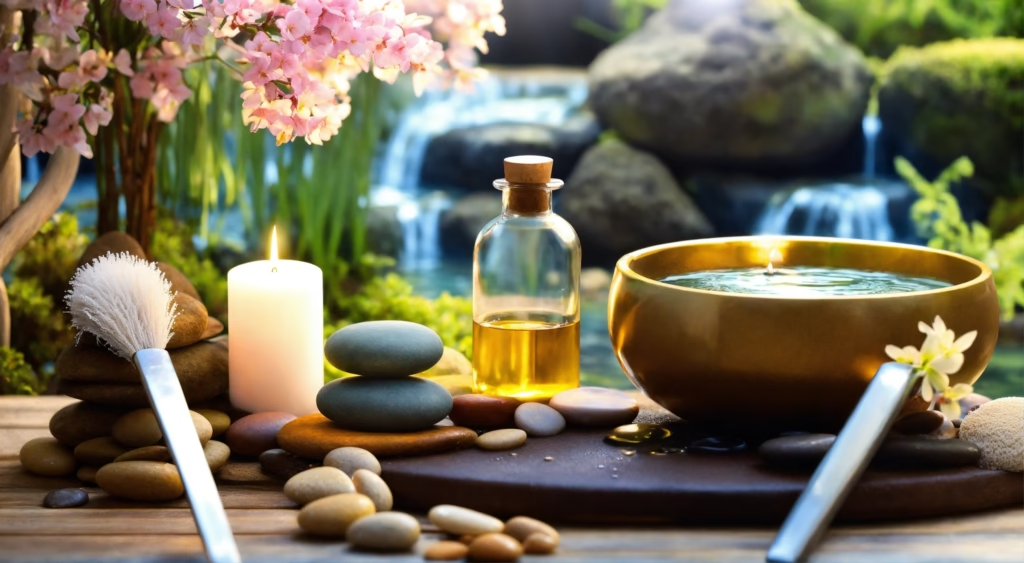
Natural skincare products
Maintaining radiant, healthy skin doesn’t have to involve a cabinet full of expensive, chemical-laden products. Natural skincare products and home remedies are transforming the beauty industry by offering safe, effective solutions that cater to diverse skin needs. In this comprehensive guide, we’ll explore the essence of natural skincare, discuss top product options, delve into DIY remedies, and highlight why avoiding harmful chemicals is critical.

Introduction
The quest for glowing skin often leads consumers to a dizzying array of chemical-rich skincare products promising quick fixes. Yet, these can come with side effects, from dryness to severe irritation. Natural skincare products and home remedies offer a gentler, safer alternative grounded in centuries-old practices and modern science.
This article unpacks the essentials of natural skincare, covering:
- What makes a product truly natural.
- Key home remedies for common skin issues.
- Insights into harmful chemicals to avoid in skincare.
Whether you’re a skincare enthusiast or a curious beginner, this guide will empower you to make informed, thoughtful choices for your skin health.

Understanding Skincare Basics
What is Natural Skincare?
Natural skincare refers to products derived from botanicals, minerals, and other naturally occurring elements. Unlike conventional products, they avoid synthetic chemicals, parabens, and artificial fragrances. Home remedies fall under this umbrella, as they utilize unprocessed ingredients directly.

How Your Skin Works

Your skin, the largest organ, acts as a barrier while also absorbing nutrients. Understanding its three layers—epidermis, dermis, and subcutaneous tissue—can help you choose products that cater to its specific needs. For instance, the dermis benefits most from hydrating products, while the epidermis thrives on gentle exfoliation.
The Role of Skin Type
Before diving into natural skincare products or remedies, knowing your skin type is essential:
- Dry skin: Needs intense hydration and nourishing oils.
- Oily skin: Prefers light, non-comedogenic products.
- Combination skin: Balances hydration without overloading oils.
- Sensitive skin: Thrives on hypoallergenic, fragrance-free solutions.
By identifying your skin type, you can better tailor your natural skincare regimen.

Top Natural Skincare Products
Key Ingredients to Look For
The most effective natural products contain powerhouse ingredients like:
- Aloe Vera: Hydrates and soothes irritation.
- Vitamin C: Brightens skin and fights free radicals.
- Hyaluronic Acid: Retains moisture, reducing fine lines.
- Tea Tree Oil: Combats acne with antibacterial properties.

Best Natural Skincare Products on the Market
- True Botanicals Pure Radiance Oil
- Ingredients: Chia seed oil, Vitamin C, omega fatty acids.
- Suitable for: Dry and aging skin.
- Tata Harper Regenerating Cleanser
- Ingredients: Apricot microspheres, willow bark extract.
- Suitable for: All skin types.
- Drunk Elephant Protini Polypeptide Cream
- Ingredients: Peptides, amino acids, and antioxidants.
- Suitable for: Dull and sagging skin.
| Product | Key Ingredients | Best For | User Rating |
| Pure Radiance Oil | Chia Seed Oil, Vitamin C | Dry and Aging Skin | ★★★★★ |
| Regenerating Cleanser | Apricot, Willow Bark | All Skin Types | ★★★★☆ |
| Protini Cream | Peptides, Amino Acids | Dull and Sagging Skin | ★★★★★ |
These products combine potent natural ingredients, making them go-to options for eco-conscious consumers.

Home Remedies for Healthy Skin
DIY Remedies for Common Skin Issues
Natural remedies can be created with pantry staples:
- Acne Treatment: Mix tea tree oil with aloe vera gel.
- Moisturizer for Dry Skin: Blend avocado, honey, and olive oil.
- Anti-Aging Mask: Use mashed banana, yogurt, and a sprinkle of turmeric.

The Science Behind Natural Ingredients
- Honey: Naturally antibacterial and a humectant, keeping the skin moist.
- Aloe Vera: Rich in vitamins C and E, ideal for healing and hydration.
- Coconut Oil: Provides a protective barrier and deep nourishment.
Tips for Application
- Always apply remedies to clean skin.
- Perform a patch test to check for sensitivity.
- Use remedies 2–3 times a week for optimal results.

Avoiding Harmful Chemicals in Skincare
Common Chemicals to Avoid
- Parabens: Linked to hormone disruption.
- Sulfates: Cause dryness and irritation.
- Synthetic Fragrances: Often trigger allergies.
The Risks of Chemical-Based Products
Continuous exposure to harmful chemicals can lead to:
- Premature aging.
- Increased sensitivity.
- Long-term health complications like endocrine issues.
Reading Labels Like a Pro
- Check for certifications like “USDA Organic.”
- Opt for fragrance-free products.
- Research unfamiliar ingredients on resources like EWG’s Skin Deep Database.

Comparative Analysis with Tables
| Natural Remedies | Chemical Products |
| Gentle on Skin | May cause irritation |
| Cost-Effective | Often expensive |
| Eco-Friendly | Non-biodegradable options |

Conclusion
Choosing natural skincare products and remedies over chemicals ensures better long-term skin health while minimizing environmental impact. By understanding your skin type, recognizing harmful chemicals, and exploring natural alternatives, you can create a routine that’s both effective and safe. Start with small changes, like replacing your cleanser or moisturizer, and watch your skin transform!
FAQs
What are the best natural ingredients for sensitive skin?
Aloe vera, chamomile, and oatmeal are gentle options. They reduce inflammation without causing irritation.
How can I test home remedies safely?
Apply a small amount to your wrist or behind your ear and wait 24 hours to ensure no adverse reactions.
Are natural skincare products as effective as chemical-based ones?
Yes, when chosen carefully. Natural products provide long-term benefits without harmful side effects.
How often should I use home remedies in my skincare routine?
2–3 times a week is sufficient for most skin types.
Can natural products cause allergic reactions?
Yes, if you’re sensitive to certain ingredients like nuts or essential oils. Always perform a patch test.



